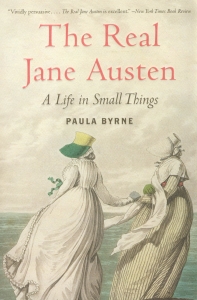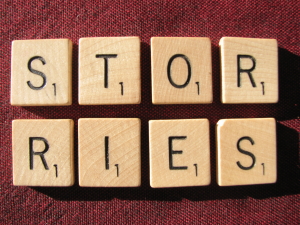Is There an Audience for Your Life Story?
Have you ever been trapped in a front row seat for a relative’s unedited slideshow? The one where he pauses at every image, whether blurry or nice, skipping back and forth from Spain’s high plateau to its beaches, from flamenco dancers to dinner in Barcelona—at a rambling pace made even slower by arguments with his wife about whether they ate paella or steaks that night. At about midnight, when your chin is propped on the arm of your chair, he announces there’s just a few more to go.

A cradle to grave account is rarely engaging, even for a super star like Jane Austen. Instead of starting with the moment of birth give readers a live wire scene that links to continuing family dynamics–and you’ll have them hooked.
What happened here? You certainly won’t be back for more. If this favourite uncle was to write a memoir (a focused tale about a facet of his life) or an autobiography (a full life story) you’d have a choice. You could put the book down. And within a generation or less that life story would be tucked away in a granddaughter’s attic.
To change this outcome your uncle would select just a few sparkling gems from his treasure trove of memories, featuring people and events that resonate in your life. With this audience-based focus, he (as with all writers of fiction and nonfiction) will start with these questions:
The Writing Process Starts With Questions
Why do you want to write this? Is it to come to terms with a troubled childhood? Maybe you want to reminisce about a vanished way of life; or to share lessons learned in a struggle with adversity. Your answers will dictate style, length and tone–and lead to more questions. If, for example, your motivation is to be remembered you’ll inject story craft and focus: because you want readers.
Who is your intended audience? Are you writing this just for yourself, for a sibling, or for the generations to come? Here too, the answers will direct what you write and lead to yet another question.
 What does your audience want? They’ll want a good story, with well-rounded characters (complete with warts and beauty spots) who face challenges. (Sadly, a happy tale of people living the good life has limited interest.) Can you give them vicarious experiences with meaning and insights applicable to their own lives? Maybe you have gained perspective on an ongoing family dynamic like an inherited propensity for hoarding (as in my family), or the multi-generational effects of alcoholism.
What does your audience want? They’ll want a good story, with well-rounded characters (complete with warts and beauty spots) who face challenges. (Sadly, a happy tale of people living the good life has limited interest.) Can you give them vicarious experiences with meaning and insights applicable to their own lives? Maybe you have gained perspective on an ongoing family dynamic like an inherited propensity for hoarding (as in my family), or the multi-generational effects of alcoholism.
No matter which way you serve it up, writing a life story consumes hundreds of hours, so consider audience interests and study story dynamics to ensure your autobiography or memoir becomes a reflecting pool for generations to come.
